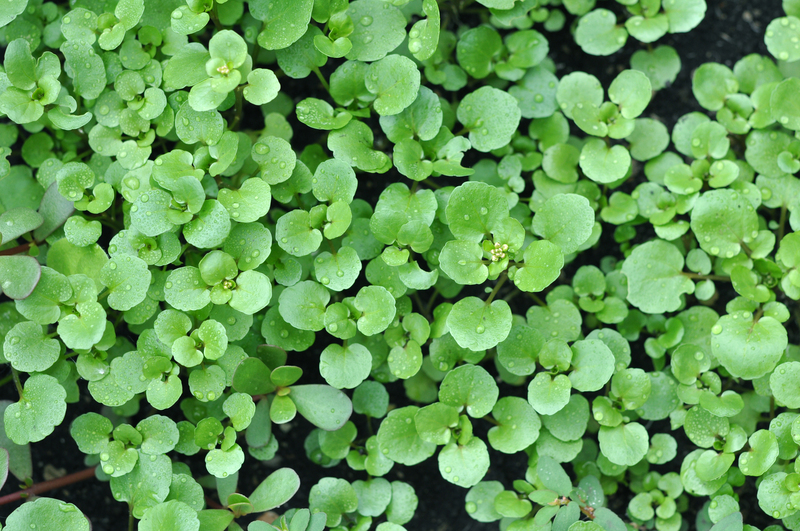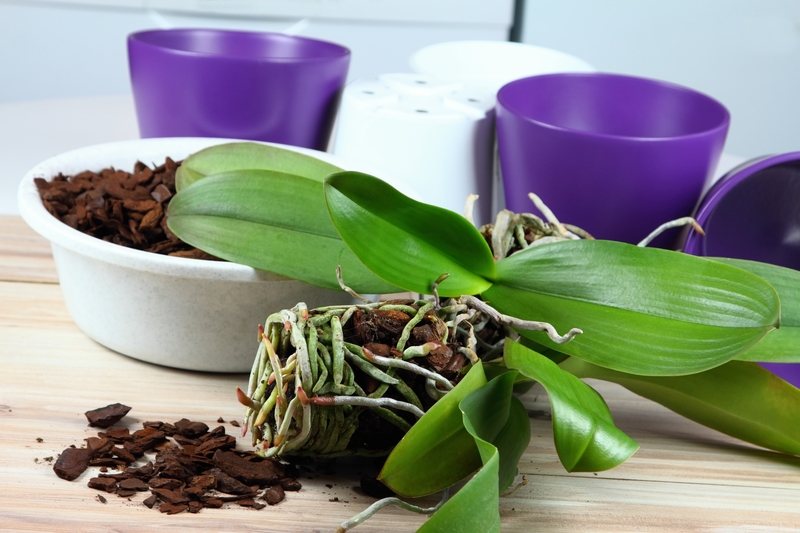Sustainable Soil: Fostering Growth from Waste
Posted on 18/08/2025
Sustainable Soil: Fostering Growth from Waste
Sustainable soil management is more critical today than ever before. As global populations rise and agricultural lands face increasing pressure, it's time to dig into how we can nourish the Earth and our communities--starting from the ground up. One of the most promising solutions? Transforming organic and agricultural waste into high-quality, fertile soil. In this comprehensive article, we'll explore the importance of sustainable soil practices, the science behind converting waste into growth, and actionable steps to integrate these techniques into home gardens, farms, and urban environments.

What Is Sustainable Soil?
Sustainable soil refers to soil that is managed and used in ways that maintain its health, productivity, and ecological function over time. Unlike conventional methods that may degrade soil through overuse of chemical fertilizers, pesticides, and monocultures, sustainable practices nurture thriving ecosystems within the soil itself.
- Enhances soil fertility and structure, supporting crop yields overtime
- Improves water retention, reducing erosion and runoff
- Reduces the reliance on synthetic inputs, encouraging natural processes
- Promotes biodiversity of microorganisms, worms, and other soil dwellers
- Helps in carbon sequestration, contributing to climate change mitigation
Sustainable soils are not just a farmer's concern--everyone, from urban gardeners to policymakers, plays a role in cultivating and protecting them.
The Link Between Waste and Soil Health
One of the most untapped resources for regenerative soil management is the waste that we generate every day. From household food scraps to crop residues, what is often seen as mere garbage can, through the right practices, become the building blocks of thriving, healthy soil ecosystems.
Why Waste Matters
- Organic waste contains essential nutrients such as nitrogen, phosphorus, and potassium
- Composting and recycling waste reduces landfill burden and methane emissions
- Reduces the need for synthetic fertilizers, lowering agricultural costs and pollution
- Unleashes natural biological processes that restore soil vitality
Integrating waste-to-soil strategies is a win-win for both people and the planet.
Transforming Waste into Fertile Soil: The Process Explained
The magic of turning waste into nutrient-rich soil relies on some fundamental natural processes. Below, we break down the essential steps and methods.
Composting: Nature's Recycling System
Composting is the decomposition of organic material, such as food scraps and yard waste, under controlled, aerobic conditions. Microorganisms, worms, and insects break down these materials, transforming them into a dark, earthy substance called humus--rich in nutrients and perfect for fostering new plant growth.
- Types of composting:
- Hot composting: Fast and requires careful ratio of greens (nitrogen) to browns (carbon)
- Vermicomposting: Uses worms to accelerate breakdown, often in small spaces
- Sheet composting: Spreading organic matter and letting it decompose in-situ
The Science Behind Healthy Soil from Waste
- Decomposition breaks long chains of complex organic molecules into plant-available nutrients
- Improved soil structure for better root growth and water movement
- Boosts populations of beneficial microbes and mycorrhizal fungi
- Suppresses soil-borne diseases naturally, reducing crop losses
Biochar: Boosting Sustainable Soil with Charred Waste
Biochar is a stable form of carbon produced by heating organic material in a low-oxygen environment. When incorporated into soil, biochar can:
- Increase soil fertility by holding onto nutrients
- Enhance soil moisture retention
- Provide microhabitats for beneficial microbes
- Sequester carbon for hundreds to thousands of years
Integrated Waste and Soil Management in Agriculture
On larger scales, integrating livestock manure, crop residues, and agro-industrial wastes back into the soil is an essential sustainability practice for farmers worldwide. These practices can significantly replenish lost soil organic matter and bolster long-term agricultural productivity.
Global Perspectives: Successful Waste-to-Soil Initiatives
Countries around the world are recognizing the value of sustainable soils through innovative waste management and soil restoration projects:
- The Netherlands: Leading in circular agriculture by turning urban green waste into high-quality compost for vegetable production.
- India: Rural communities practice vermicomposting on a large scale, improving yields and increasing income for smallholder farmers.
- United States: Municipal food waste diversion programs not only reduce landfill but create robust soil amendments for parks and public gardens.
Benefits of Fostering Sustainable Soils Using Waste
- Restores degraded soils: Infusion of organic matter rebuilds and regenerates nutrient-poor soils.
- Supports plant health and resilience: Healthy soils produce crops and ornamental plants that are more resistant to disease and drought.
- Reduces greenhouse gas emissions: Less organic waste in landfills and improved soil carbon storage help combat climate change.
- Improves food security: Enhanced soil fertility supports higher, stabler yields year after year.
- Encourages biodiversity: Rich, living soils support healthy communities of organisms, above and below ground.
Barriers and Solutions to Waste-Driven Soil Sustainability
Despite the advantages, there are obstacles to making waste-to-soil strategies mainstream:
- Lack of infrastructure for collecting and processing organic waste
- Lack of public awareness about composting and soil health
- Perceived inconvenience or confusion about "how to start"
- Concerns about contamination (especially with non-organic or chemically treated waste)
Overcoming Challenges
- Education: Community workshops and school programs build foundational knowledge
- Policy change: Supporting municipal composting initiatives and incentives for soil restoration
- Household and farm-level innovations, such as compact composters and accessible training materials
- Certification and guidelines to ensure safe, effective use of agricultural and urban waste
How to Start Building Sustainable Soil at Home
Anyone can help nurture sustainable, fertile soil using household waste! Here's how:
- Start a compost bin for kitchen scraps, yard clippings, and uncoated paper
- Add layers of "greens" (fruit, vegetable waste, coffee grounds) and "browns" (leaves, straw, cardboard) to keep the pile balanced
- Turn your pile regularly to introduce oxygen and speed up decomposition
- After several months, use your finished compost to enrich garden beds, lawns, or container plants
- Try vermicomposting in small spaces--worms love coffee grounds, vegetable peels, and even shredded newspaper!
Pro tip: Avoid adding meat, dairy, oily foods, or chemically treated materials to home compost for safety and quality.
Innovative Ways to Foster Sustainable Soil in Urban Environments
- Community compost programs: Pool neighborhood resources and share finished compost with local gardens
- Rooftop gardens using lightweight, nutrient-rich soil from recycled organics
- Municipal "green bin" pickup and drop-off services
- Utilize balcony or small-yard composting systems tailored to urban dwellers

The Future of Sustainable Soil: Circular Solutions
As communities grow and our climate changes, the circular use of waste to build and sustain fertile soils will become even more vital. Advances in technology--such as automated composters, AI-driven soil health monitoring, and large-scale biochar production--are making it easier and more efficient to close the loop between what we discard and how we grow food.
- Emerging agricultural practices such as regenerative farming and agroecology rely heavily on healthy soils fostered through organic waste recycling.
- Policy and business innovations are paving the way for investment in sustainable waste-to-soil infrastructure.
- Education and global awareness are empowering individuals and communities to take action, transforming waste streams into valuable resources.
Sustainable Soil: A Community Responsibility
At the heart of sustainable soil management is a simple truth: healthy soils mean healthy people and a healthy planet. By choosing to compost, recycle organic materials, and support initiatives that connect waste with land, everyone can be a steward of soil regeneration. Whether you're a backyard gardener or a commercial farmer, your choices matter--each banana peel, coffee filter, or pile of autumn leaves can become the foundation for vibrant ecosystems and bountiful harvests.
Start today by fostering growth from waste and join the movement for truly sustainable soils!
Key Takeaways
- Sustainable soil is essential for food, water, and climate security worldwide
- Organic waste is a powerful tool for regenerating soil and reducing landfill impact
- From composting to biochar, the methods for transforming waste are accessible to all
- Communities, businesses, and governments must collaborate for widespread soil sustainability
Let's foster growth from waste and ensure that every inch of soil supports life for generations to come!

